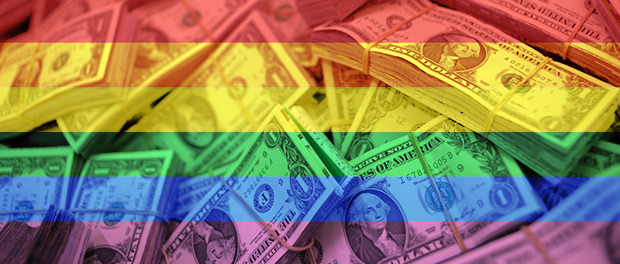After the recent tragedy in Orlando this June, taking the time to celebrate and honor Pride Month is more important than ever. In the last decade the LGBT community has made strides in advancing their rights but in many areas still remains disproportionately affected.
When talking about equal pay, we know that one woman makes less than a man, but what happens when a household is run by two women? Also, how do social stigmas against the LGBT community result in unfair pay practices due to discrimination? Here are the three things you should know about how the wage gap affects the LGBT community.
1. Lesbian Couples Experience Double the Gap
It is not uncommon to hear of how one woman makes only 79 cents to the heterosexual man’s dollar, impacting her economic security and stability, but in lesbian couples this gap doubles. In New York State, a white lesbian couple would not just loose the average $430,480 per woman over the course of a 40-year career due to the wage gap, but, their household would experience a total average loss of $860,960. This number rises dramatically for African American women who on average lose $877, 480 per woman and Latinas who have losses over $1 million. This loss of wages impacts day to day abilities to provide for their families, establish homes and raise children as well as greatly diminished retirement security.
2. Gay Men Face A Wage Gap Of Their Own
In the LGBT community the wage gap is not one that only affects women and lesbian couples. Discrimination based on sexual orientation is present in several studies that conclude that gay men earn 10% to 32% less than similarly qualified heterosexual men.
3. The Post-Transition Gap
Transgender individuals experience discrimination in several forms within the workplace including hiring and firing practices and wages. It has been found that fifteen percent of transgender people report making less than $10,000 per year. Economic stability is not always found post-transition either, one study found that earnings for male-to-female transgender workers fell by nearly one-third after their gender transitions, but earnings for female-to-male transgender workers did increase slightly.
This topic of economic security in the LGBT community is one that is currently understudied and underrepresented in legislation nationwide. Policymakers and elected officials can and should enact a broad range of policies to battle the problem of employment and wage discrimination against the gay and transgender workforce.


